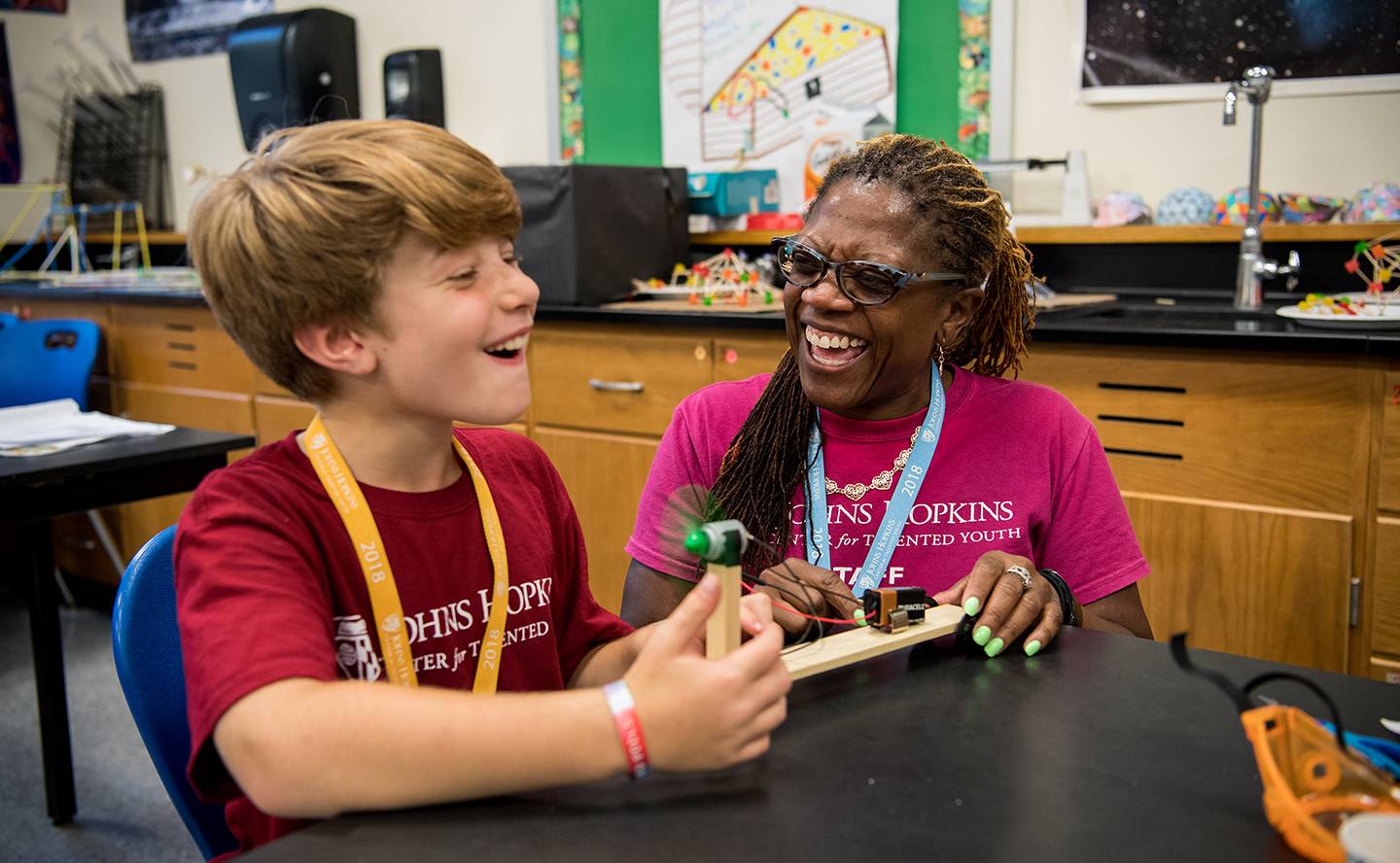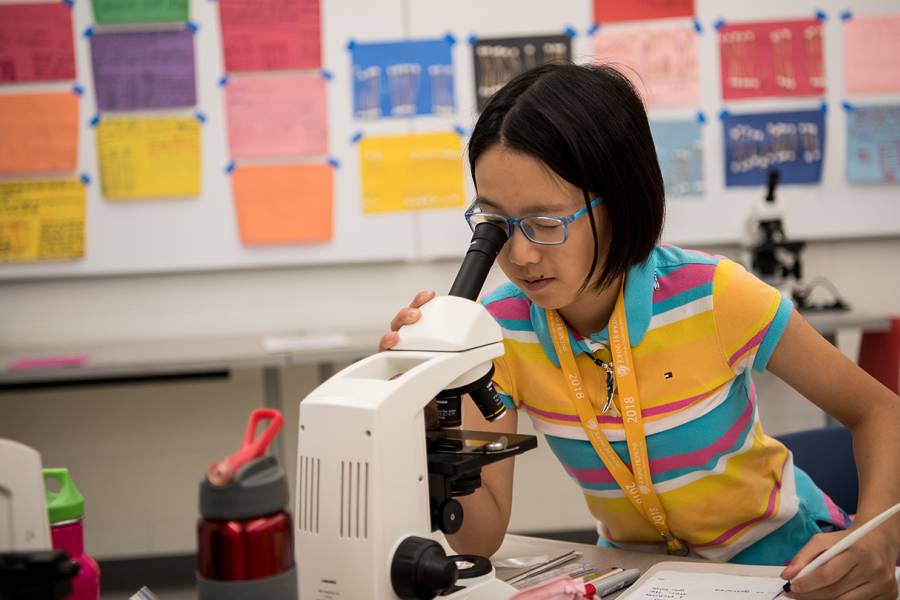Heather Wilson's classroom door is decorated with colorful glass ornaments that her third- and fourth-grade students have labeled to depict the parts of a cell. Inside, the room is a flurry of activity as her students monitor the life systems burgeoning around them—"biobottles" filled with fish, rocks, and plants; beans sprouting from petri dishes; DNA extracted from strawberries; and crystals forming geometric shapes under microscope lenses.
This is just a tiny slice of what happened this summer at the Johns Hopkins Center for Talented Youth. A nonprofit center, CTY hosts hundreds of summer, online, and family courses for more than 20,000 academically advanced K-12 students each year.
Nearly 9,000 students from around the world attended CTY's day and residential programs this summer, taking courses like Through the Microscope, Crafting the Essay, Data and Chance, and Introduction to Robotics at 24 sites in the U.S. and Hong Kong. Meanwhile, students enrolled in CTY's online programs spent the summer learning Arabic and Chinese; honing their storytelling skills; mastering calculus; and doing experiments in biology and physics. Participants in CTY's family academic programs camped at Mount St. Helens, sailed on the Coast Guard Cutter Taney, and toured JHU's Applied Physics Lab.
At CTY's Institute for Advanced Critical and Cultural Studies, a new humanities program held this summer at Dickinson College in Carlisle, Pennsylvania, high school students explored modern and classical satire, debated the ethics of animal experimentation, and examined the mental health of the narrator in Poe's "The Tell-Tale Heart."
And on Johns Hopkins University's Homewood campus, nine rising high school seniors from around the U.S. paired with research teams to explore critical science problems as part of CTY's summer research program. This is the fourth year CTY has hosted the program, during which students spend six weeks working in labs and other JHU facilities doing graduate-level research, then share their findings during a research symposium.

Image caption: Dionne Marsh, instructor of CTY’s Inventions course, works on an air motor car with student Nicolo Kassouf, 9.
Image credit: Howard Korn
Gabriel Cuilan, a 17-year-old CTY summer research program student from New York City, examined the effects of chronic stress on the brain and body. He said the program taught him technical lab skills, how to communicate complex information to an audience, and how to think through tough problems in medicine and society.
Students say CTY also gives them a sense of community in which they can celebrate their love of learning among other bright kids. Sahil Khattar, a 10th grader from Old Bridge, New Jersey, who studied neuroscience this summer, said he enjoyed the intellectual challenges he found at CTY—but his excitement truly showed when he spoke about the friends he made.
"There is a real community atmosphere here, and I love how accepting everyone is and how passionate everyone is about learning," he said. "There's no judgment; you can totally be yourself."
Amanda Nguyen, a 15-year-old from Fountain Valley, California, who studied Fast-Paced High School Chemistry at CTY this summer, said it's a place where students make some of the closest friendships of their lives.
"In those three short weeks, you learn how to be a nerd and also have so much fun at the same time," she said.
Posted in University News
Tagged center for talented youth








